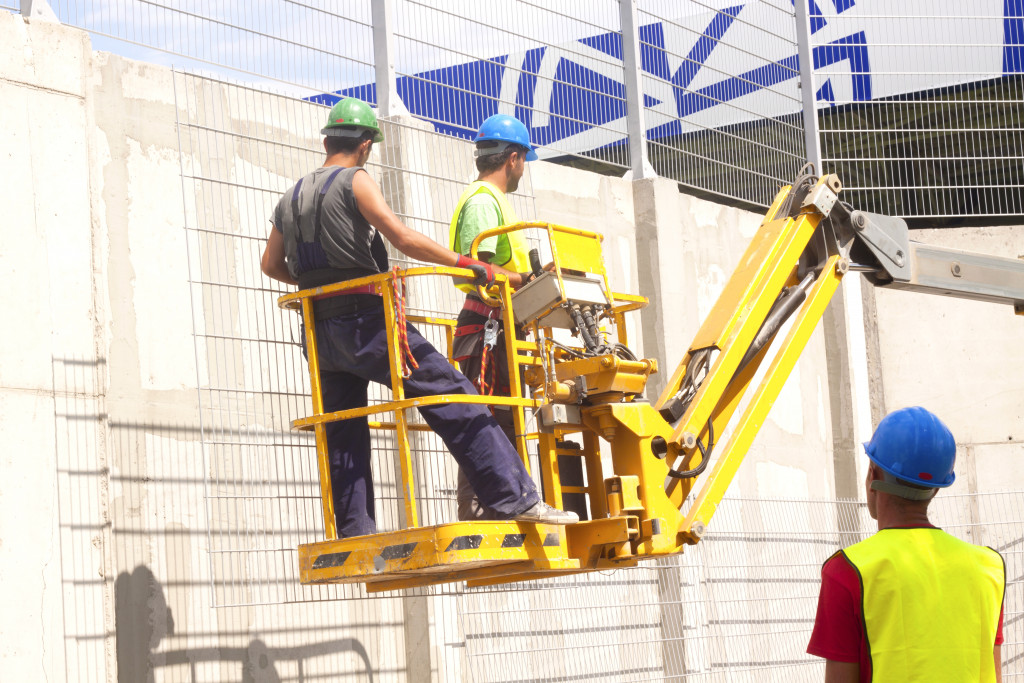- Develop a clear business plan to provide direction and growth for your construction business
- Establish a strong network of reliable suppliers and subcontractors to source quality materials, equipment, and labor
- Prioritize safety and compliance by implementing rigorous safety measures, familiarizing yourself with regulations, and providing proper training
- Cultivate a skilled and dedicated team with expertise in various aspects of construction
- Invest in general liability, workers’ compensation, and builder’s risk insurance to protect your business.
Starting a construction business can be an exciting and rewarding venture. However, it requires careful planning, strategic decision-making, and a solid foundation to succeed in this competitive industry. Whether you have years of experience in construction or are new to the field, these five essential tips will guide you toward launching a successful construction business.
1. Develop a Clear Business Plan
To set the stage for your construction business, creating a well-thought-out business plan is crucial. This document will serve as your roadmap and guide your company’s growth. Within your business plan, define your target market, outline your services, and identify your competitive advantage. Include financial projections, marketing strategies, and an operational framework to demonstrate a comprehensive understanding of your business.
Creating a business plan will help you make informed decisions, attract potential investors or lenders, and provide a solid foundation for your construction business.
2. Establish a Strong Network of Suppliers and Subcontractors

In the construction industry, having reliable suppliers and subcontractors is key to completing projects on time and within budget. Building a strong network of trusted partners is essential for sourcing quality materials, equipment, and skilled labor.
Here are tips for establishing a strong network of suppliers and subcontractors:
Do Your Research
Before committing to any supplier or subcontractor, you should do your due diligence. Take the time to research potential partners before entering into agreements. Check reviews on online forums and websites, verify credentials, and read feedback from other contractors. Talk directly with previous customers about their experiences working with the company when possible. Doing so will help you make a well-informed decision and create a strong network of reliable suppliers and subcontractors.
Reach Out to Local Companies
Start by targeting local businesses that specialize in providing materials or services related to your project. Contact them through emails, phone calls, or direct mailers to introduce yourself and explain what kind of services you require. Reach out to associations or groups of subcontractors and suppliers, such as a local trade organization, to find companies that may be able to provide the services you need.
Establish Mutually Beneficial Agreements
Once you have identified potential partners, signing mutually beneficial agreements that outline terms and conditions for both parties is essential. Ensure everyone understands their responsibilities and obligations before agreeing. This will help ensure that every job runs smoothly and that both sides are satisfied with the results.
Foster Good Relationships
Good relationships are essential for creating a successful network of suppliers and subcontractors. Be respectful, communicate effectively, pay on time, discuss issues openly, and follow up regularly. Regularly evaluate the performance of your suppliers and subcontractors to ensure they are meeting your standards. By nurturing strong relationships with your partners, you can create a reliable network to help you complete projects efficiently and successfully.

3. Focus on Safety and Compliance
Safety should be a top priority for any construction business. Implementing rigorous safety measures protects your workers and enhances your reputation as a responsible contractor. Familiarize yourself with local, state, and federal safety regulations and ensure your employees receive proper training.
Create a safety manual that outlines procedures, guidelines, and protocols to follow on construction sites. Conduct regular safety inspections, invest in personal protective equipment (PPE), and always enforce strict safety protocols. By prioritizing safety and compliance, you can minimize accidents and potential legal issues, thus safeguarding your business’s reputation.
4. Cultivate a Skilled and Dedicated Team
Your construction business’s success heavily relies on your team’s skills and dedication. Hire experienced professionals committed to delivering high-quality work and share your vision for the company. Look for individuals with expertise in various aspects of construction, such as project management, estimating, and site supervision.
Invest in ongoing training and professional development programs to keep your team updated with industry trends and techniques. Foster a positive work environment that promotes teamwork, open communication, and recognition of achievements. A skilled and motivated team will enhance your project outcomes and contribute to a positive company culture, attracting future clients and employees.
5. Invest in Insurance
As a contractor, investing in reliable construction insurance is essential to protect your business. Construction insurance can cover any financial losses due to property damage, injury, or lawsuits related to your projects. It typically includes general liability, workers’ compensation, and builder’s risk insurance policies.
General liability insurance covers bodily injuries and property damage caused by your business activities. Workers’ compensation insurance protects employees from work-related injuries or illness and covers associated medical expenses. Builder’s risk insurance covers property damage or loss due to theft, fire, vandalism, storms, floods, and other natural disasters.
In Closing
Starting a construction business requires careful planning, strategic decision-making, and attention to detail. By following these five essential tips—developing a clear business plan, establishing a strong network of suppliers and subcontractors, focusing on safety and compliance, cultivating a skilled and dedicated team, and investing in insurance—you will lay a strong foundation for your construction business. With dedication, perseverance, and a customer-centric approach, your construction business can thrive and achieve long-term success in this dynamic industry.



